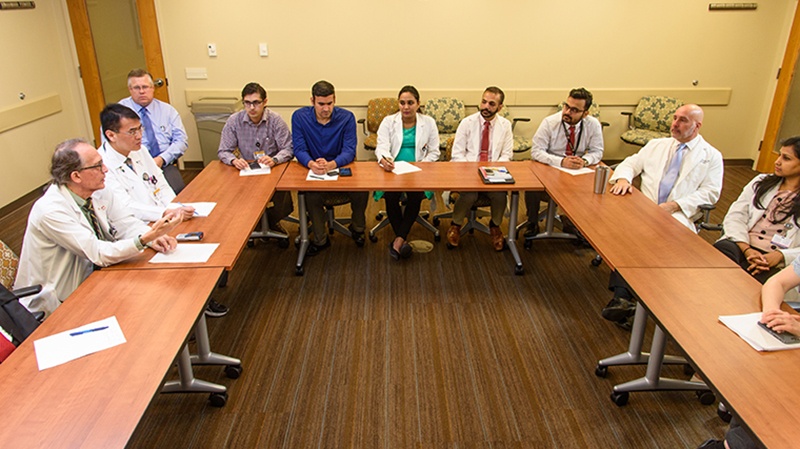
The fight against cancer cannot be won single-handedly. That’s why at University of Missouri Health Care’s Ellis Fischel Cancer Center, multidisciplinary teams of cancer specialists meet regularly to discuss new or challenging cases. These meetings, known as tumor boards, bring together a variety of specialists with unique perspectives — all to devise the best treatment plan for each patient.
But, manually collecting and organizing patient information from disparate sources — radiology and microscope slide images, pathology reports, electronic medical records and more — is a time-intensive endeavor. In collaboration with the pharmaceutical and diagnostics company Roche, researchers at the MU School of Medicine are helping implement a tool to streamline and standardize the process. MU is the first U.S.-based institution to pilot the NAVIFY™ Tumor Board solution.
“Across the field of cancer care, there’s no standard way in which tumor boards are conducted,” said Richard Hammer, MD, vice chair of the Department of Pathology and Anatomical Sciences and co-principal investigator on the project. “Together with Roche, we’re piloting a tumor board application called Navify. Our goal is to create a uniform system to bring a variety of information and expertise into a cohesive and centralized location. By streamlining our process, we can then use our time together to help more patients more effectively.”
Two tumor boards at MU — hematopathology and breast cancer — currently are piloting the Navify software, with plans to bring an additional two tumor boards into the project before eventually expanding it system-wide to all tumor boards. Hammer is collecting data on how Navify improves efficiency, but more importantly, how it impacts patient outcomes and satisfaction, with plans to publish an in-depth analysis in a medical journal.
Hammer and principal investigator Jerry Parker, PhD, associate dean for research at the MU School of Medicine, are spearheading the software’s implementation.
“We see tremendous potential for this type of solution to help advance cancer care,” Parker said. “The workflow is much easier for our oncology nursing staff to manage, and the patient information is presented much more clearly, so we expect that to improve efficiency in the meetings and create more time for in-depth discussion of patient cases and the best treatment options.”
While the initial scope of the project relates to tumor boards, leaders envision other possibilities, such as precision medicine applications and the creation of a database that can be used to help improve the health of populations.
“We’re looking forward to not only the immediate impact we hope this will have on our patients, but also to the evolution of the software,” Hammer said. “Together with Roche, we’re really breaking ground on leading-edge technology for tumor boards and patient care in cancer treatment.”





